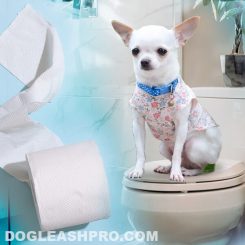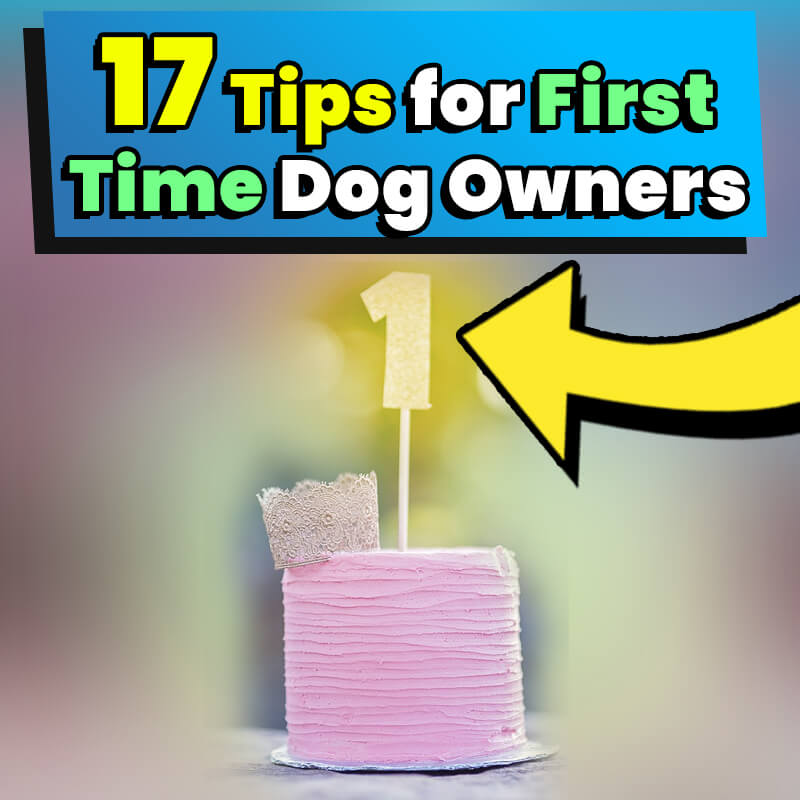
While there’s no doubt that our puppies bring us companionship, loyalty, happiness, and laughter, many owners can agree that the first few months of puppy ownership can take a toll on us. And much of that headache is due to this burning question: Why does my Puppy Pee So Much?
Our daily schedule heavily revolves around our puppies’ bladders (and stomach) to say the least.
In the dead of winter, you find yourself outside freezing and shivering more than 5 times a day because your puppy needs to pee a lot only to find out he pees in small amounts every time.
You may also find your puppy constantly peeing in the house. You then have to clean up the pee from the floor or carpet as soon as you can to prevent the foul smell from filling up the house.
Whatever the case may be, you’re determined to be the best puppy owner and learn his peeing behavior. In this comprehensive guide, you’ll find answers to questions like, “Is it normal for puppies to pee a lot?” and “What’s causing excessive urination in puppies?”
It could be due to some health issues you weren’t aware of and this should not be ignored. Let’s begin!
Related Article: How Many Times A Day Should A Puppy Poop?
Table of Contents
Key Takeaways: Why does my Puppy Pee so much?
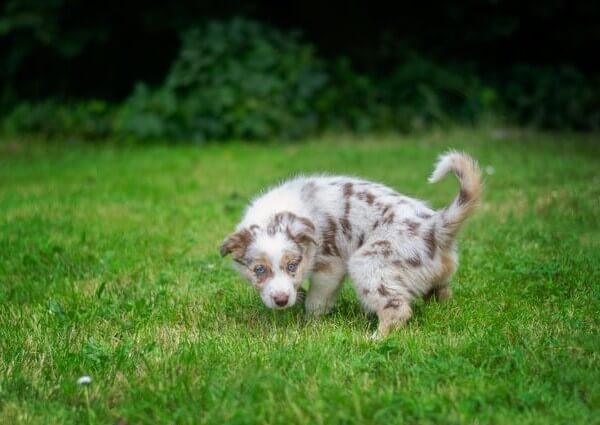
- It’s normal for puppies to pee more often than adult dogs since they have very small bladders and are still growing.
- Puppies should pee at least once per hour per month of age, however, if they need to pee more than that, they may be suffering from a serious health issue. (Scroll to the middle to read the explanation below).
- There are several health problems that can cause excessive peeing in puppies, including acute renal failure, urinary tract infections (UTI), and diabetes, to name a few.
- Puppy peeing a lot suddenly can also be due to behavioral issues. If your puppy is experiencing separation anxiety or not getting enough attention from you, they may act out by peeing more frequently.
- Your puppy may not have totally grasped the house-training rules regarding where and when they can pee. Continous house-training is key if this is the reason.
Handy Hint: Kidney failure doesn’t just happen to older dogs, it can happen to dogs of any age, including puppies. Most likely, this health problem occurs when our puppies are exposed to toxins or infections. It’s life-threatening and requires immediate medical attention. The good news is that with rapid and aggressive treatment, kidney or renal failure can be reversible.
How often should a Puppy Pee? What’s considered normal?
If you have an adult dog, you already know that they can hold their bladder for more than a few hours. Your daily schedule (whether you work from home, or not) usually goes according to plan since you’re not often interrupted with more than three potty trips outside each day. This means they can wait at least 8 hours between each potty session.
RELATED: How Long Can Dogs Hold Their Poop?
However, when it comes to our young little puppies, it’s a different story. That’s because their bladders are naturally smaller. Also, our puppies are still growing and developing their bladder control. So comparing young puppies with adult dogs is like comparing apples to bananas since younger puppies have poor bladder control.
This is why you’ll find your male and female puppies peeing much more frequently than adult dogs throughout the day and in small amounts.
Remember that time feels longer for your little puppies. So if you notice your puppy peeing in the house a lot right after being outside, try to stay calm and be understanding.
Let’s go over an example of an adult dog vs a young puppy and see how often they need to pee.
After a long walk, your adult dog may drink up all the water in his water bowl before falling asleep in his doggy bed. He’s able to sleep throughout the night without needing to go potty. That’s because he has good bladder control so he can wait until the morning before he really needs to go pee.
On the contrary, our puppies need to clear their bladder within 10 to 30 minutes after drinking water and eating.
A good rule of thumb for young puppies that are younger than 6 months old (around 24 weeks) is to take them out to pee at least once every 1 to 2 hours. Keep in mind that our puppies aren’t able to fully gain control of their bladders until they are about 16 weeks of age.
After the 16-week-old mark (around 4 months), AKC states that puppies are able to:
“Hold their bladder for the same number of hours as the number of months of their age plus one. So, a four-month-old puppy can only hold it for five hours. Expecting your puppy to wait too long for a bathroom break will lead to an accident.”
This is usually the case until your puppies reach 9 months of age (around 36 weeks).
Why does my 8-week old puppy pee so much?
If your 8-week old puppy is peeing so much, this is quite normal so don’t fret.
At 8 weeks old, you have a very young puppy with not only a small bladder, but also very poor bladder control. You can expect him to need to go pee within 10 to 30 minutes after drinking water in order to void his bladder.
So if your 8-week old puppy pees every 15 minutes, don’t freak out.
Why does my 9-week old puppy pee so much?
A 9-week old puppy is only a little older than an 8-week old puppy. So if you’re wondering, “why is my 9-week old puppy peeing so much?” rest assured that this is quite normal.
I have an adult dog now, but back when my 9-week old puppy pees a lot, I usually would take a look at his water bowl and notice it would always be half-empty. I realized it was because he drank a lot of water, especially after running around and playing in my backyard.
If your 9-week old puppy pees all the time, take a look at their water bowl and take note of how active they are in your house or outside (if you let them play in the backyard).
Their high energy level and physical activities throughout the day can often cause them to become quite thirsty. As a result, they will drink more water than before which leads to them peeing so much.
You may be interested in: How Long Can A Puppy Go Without Eating or Drinking?
Why does my 10-week old puppy pee so much?
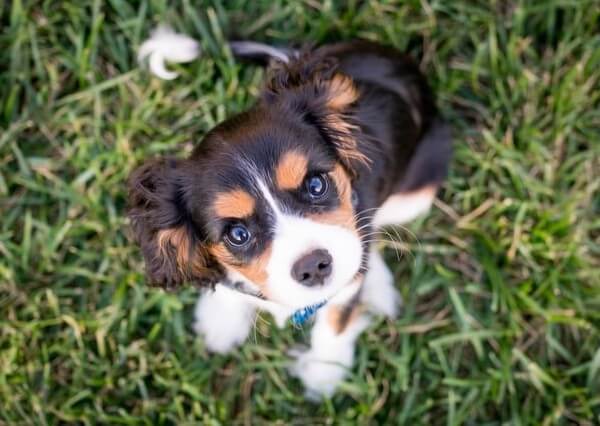
A 10-week old puppy is still pretty young. They’re about 2.5 months old at this point and still need to pee within 10 to 30 minutes after drinking water to clear their small bladder. Your 10-week old puppy still has weak bladder control which is out of his or her control.
You can expect your 10-week old puppy to pee at least once every 1 to 2 hours. Some puppies will need to pee within 15 minutes of drinking which means they need to pee at least 4 times an hour. Don’t be surprised if this is the case.
Why does my 3-month-old puppy pee so much?
Your puppy is now 3 month old or about 12 weeks of age. Your 3-month-old puppy pee so much because they’re still a young puppy who hasn’t gained control of his or her bladder yet.
As a result, it’s quite normal for him to need to go pee within 10 to 30 minutes after drinking water in order to empty his bladder. It is expected for puppies to pee at least once every one to two hours.
14-week old puppy peeing a lot: Is this normal?
Yes, it is normal for a 14-week old puppy to pee a lot. He or she is about 3.5 months old and they are still growing and learning to gain control of their bladder.
This is why you can expect your puppy to pee within 10 to 30 minutes after drinking water or pee at least once every 1 to 2 hours.
Why does my 4-month-old puppy pee so much?
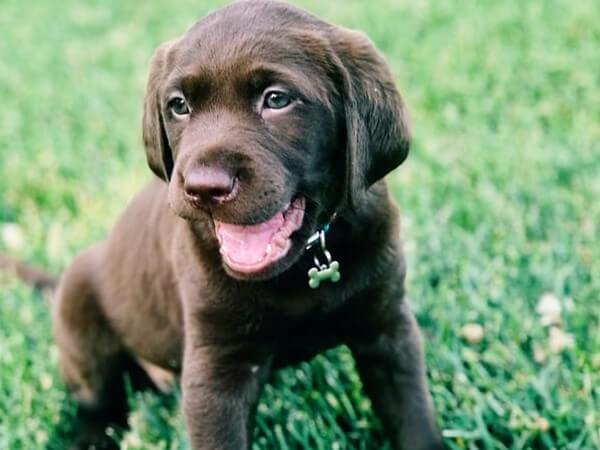
While a 4-month-old puppy can hold his bladder for up to five hours, some puppies may not be able to hold their bladder for this long. This is normal and it’s important to note that no two puppies are the same.
So while your friend’s 4-month-old puppy may only need to pee once every 5 hours or so, your puppy may need to pee at least 10 times in that 5-hour range (or every 30 minutes). That’s why it’s best not to compare your puppy with another puppy.
Your puppy’s body may grow and develop much slower than another puppy and that’s ok. If you’re ever concerned about your puppy’s health, we highly recommend that you consult your vet for advice.
Why do Puppies Pee So Much?
In some cases, our puppies pee so much to get our attention or because they are suffering from anxiety or separation anxiety. Thus, the high urination frequency could be due to behavioral issues.
You’ll want to correct these issues right away, especially when your puppies are young. The younger they are, the easier to train them and correct these bad behaviors right away before they worsen.
In other cases, it could be due to health issues you may not have been aware of. We’re glad that you’re taking the time to read this guide to stay on top of your puppies’ health and become aware of any potential health issues.
As always, it’s best to reach out to your puppies’ veterinarian and consult with them if you suspect any of the following health conditions that may be causing your puppy to pee so much.
What’s causing very frequent urination in Puppies?
If your puppy needs to pee frequently throughout the day, in the evening, and at night, then there could be other reasons (behavioral or health issues) that are contributing to your puppy pee frequency.
Let’s go over the health issues first.
DISCLAIMER: THIS WEBSITE DOES NOT PROVIDE MEDICAL ADVICE
The information, including but not limited to, text, graphics, images and other material contained on this website are for informational purposes only. No material on this site is intended to be a substitute for professional veterinary advice, diagnosis, or treatment. Always seek the advice of your veterinarian or other qualified health care provider with any questions you may have regarding a medical condition.
Resources:
https://www.ncbi.nlm.nih.gov/pmc/articles/PMC6141303/

With over five years of specialized experience as an animal writer, my expertise lies in dog nutrition, health, behavior, grooming, and training. I am dedicated to delivering helpful and informative content that caters to the well-being of our furry friends. My primary goal is to empower pet owners with knowledge and ensure our canine companions thrive in health and happiness. In my free time, I love volunteering at local dog rescue centers.



